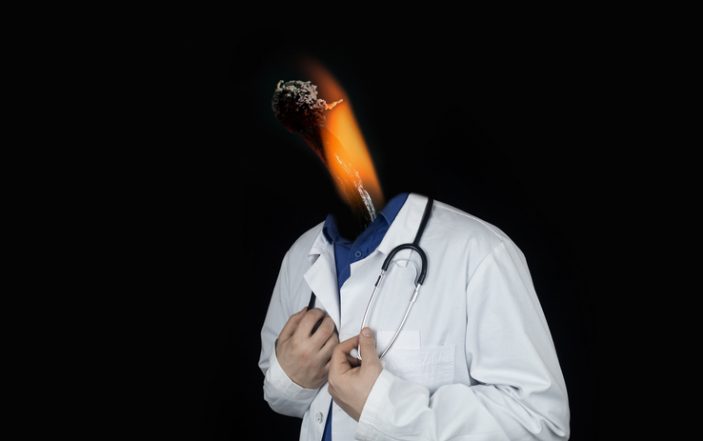Five strategies to cultivate a culture of wellness.
Although it seems like a lifetime ago, I recall doing medical student clerkships. In my mind, I thought, “They’re only 30 days! I can do anything for 30 days!” And I did. With that mentality, I was able to tough it out through many rotations that were less palatable.
At the end of each rotation, I had the satisfaction of knowing that, eventually, my hard work would pay off when I would match to an Emergency Medicine Residency Program. During this time in my education, I admittingly, but foolishly, viewed my peers as competition and, I was surviving my rotations at best.
Unbeknown to me, this cycle would repeat itself even after finally becoming an EM Resident. The days seemed long on those complex blocks of Critical Care or grueling hours on a trauma service. But alas, the block would undoubtedly end in 30 days, and we were off to the races on another educational opportunity.
Now, I found that my colleagues actually helped me through these times — yes, those I previously viewed as obstacles to my success. I began viewing them as my family, closest friends and confidants.
Together, we seemingly weathered the worst of storms and the highest of joys. We celebrated weddings, new relationships, passing boards and other milestones and consoled one another through our darkest times—deaths of parents, divorces and academic struggles. I viewed them as my war buddies. Together, we were able to accomplish our goals jointly.
Throughout my residency, I had a survival mentality. “I’ve just got to make it through! Things will get better when I’m done with residency.” However, I’ve found that I have continued to perpetuate that same framework throughout my entire career. For over a decade, I have experienced a busier schedule, higher productivity expectations and more time spent documenting, which means less interaction with patients and other physicians.
As a result, I tend to handle stress alone and don’t reach out, not because I fear looking like a weak or subpar doctor. For me, it is time. Interacting with other physicians has always been part of the fabric of the profession, an essential part of what binds doctors together and makes the profession great. The process that I used to cope in residency seems a distant memory. I am barely surviving; can I thrive?
To date, Emergency Medicine physicians have the highest rates of burnout among all physician specialties, according to Medscape’s 2022 Physician Burnout and Depression report. A Forbes April 2022 article referenced the 2022 Medscape poll on physician burnout and confirmed what has been painfully evident to doctors on the frontlines of COVID-19 — our burnout is intensifying.
According to the survey of 13,000 doctors, the nation’s most burned-out physicians are those in Emergency Medicine at 60%. One study found that 37% of physicians reported looking forward to retirement as an effective strategy for well-being. This is a physician’s survival mentality of “work now, then later I’ll retire and enjoy a personal life.” This is grossly flawed and guarantees less than optimal career satisfaction.
Ending the survival mentality requires systemic changes. Our group has focused on creating a framework for its providers to thrive by creating a Provider Wellbeing Committee where I serve as a co-chair. We’ve restructured our CME allocation, allowing 50% to be utilized for activities contributing to wellness. We’ve also designed and maintain an online portal for our physicians to promote the most up-to-date materials on wellness and career fulfillment.
As an Emergency Medicine leader, here are five things that I am trying to do in my own shop to create a culture of wellness:
- Ensure every provider gets out of the department during the shift. I ask my team to excuse themselves from the department for 10- to 15-minutes per shift to make a phone call to a family member or friend. This is essential in maintaining a healthy framework of support outside of the department. Texts or emails are not effective ways to communicate. Intonation and free-flowing conversation are important to break down barriers and build strong relationships.
- Work hard to make certain that people are getting out on time to maximize personal time. The first thing we should all do is approach the outgoing provider upon our arrival. Start by asking for handoff. If they need time to “tidy things up,” set a time to reconvene to get the handoff so they can enjoy the remainder of their day.
- Accommodate last-minute changes to the schedule to the best of our ability. Life happens: illnesses, last-minute family gatherings, a child’s game changes. I do everything imaginable to try to accommodate last-minute changes. As a conscious leader and colleague, I plan to make sure I am available to help, as I, too, may need help in the future.
- Advocate for my team and their needs and include them in key decisions. You can acknowledge frustrations in work conditions. However, the framework in which you place accountability and solutions will build confidence and reassurance in your team. Short staffed? Let them know you are working alongside them and the steps you and hospital partner leadership are doing to rectify the problem. Invite them to participate if this is an opportunity.
- Acknowledge hard work, personal or professional. If someone receives a compliment during this unprecedented time, acknowledge it. You can do this verbally, by email, or in a department/townhall meeting. If they are working and training for a marathon, or contributing to their community in service, recognize them for going above and beyond. I also try to make a point of complimenting one person in the department every day.
We all still have a great deal of work to do to make sure we are thriving and not just surviving. But as long as there is forward momentum, WE WILL THRIVE!









